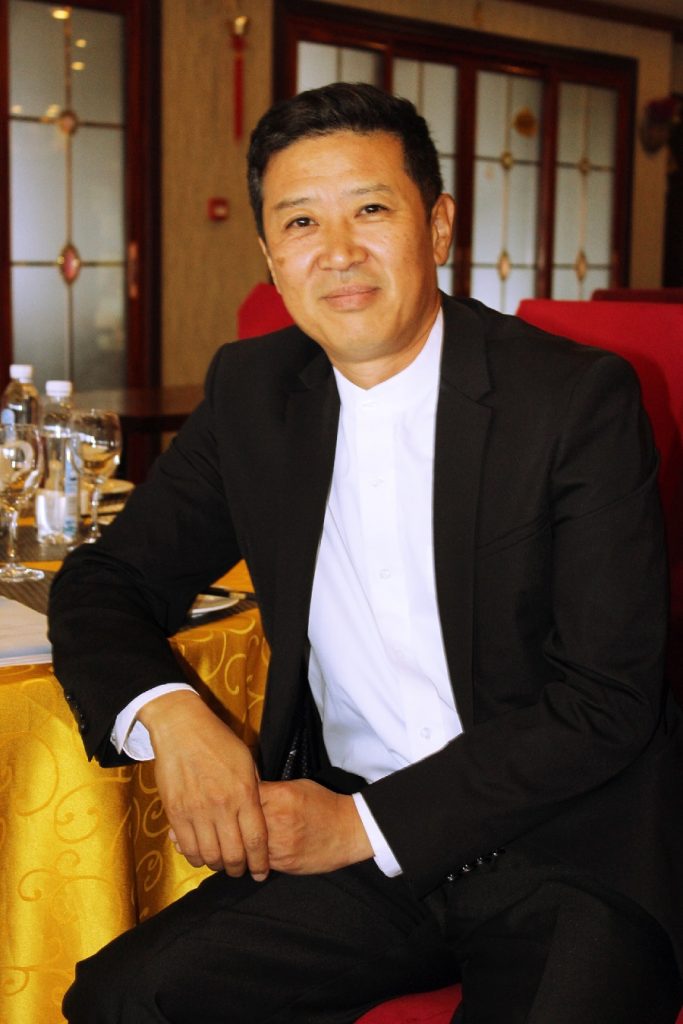Following its successful partnership with Tsholofelo Children and Youth Trust, the Charity Association of Chinese in Botswana plans to establish charity care centres across the county.
The association’s efforts are inspired by the desire to safeguard the upbringing of vulnerable children in the country, as street kids and children at risk are becoming a growing social and development problem in the world. In Botswana, street involvement amongst young people is a major social problem intertwined with economic, psychosocial and structural challenges.
“We officially partnered with Tsholofelo Children and Youth Trust in June 2016, but we had a relationship way before then in which we constantly donated food items to the trust. We decided to partner because we wanted a long term relationship that would see us significantly contribute to the favourable upbringing of children from disadvantaged households,” said Hu Yan, the Vice General Secretary of the Charity Association of Chinese in Botswana (CACB).
Now also known as the Chinese Charity Care Centre (CCCC), Tsholofelo Children and Youth Trust currently cares for 38 children in Naledi, a community that’s a symbol of poverty in Gaborone. Last year, the trust had 45 children aged between 6 to 19 years, but some have since transferred to their home villages.
“The Chinese partnered with us, providing food, clothes, and uniforms. In April 2017, we had the Chinese Medical Team screening more than 240 people in the community,” said Phenyo Mahuma, the centre’s Senior Project Officer.
The centre’s founding mandate was to provide recovery and educational services to vulnerable children. As time went by, management realised the acute need for food, and clothing assistance among children. A gap, CACB came on board to satisfy. During the school term, children eat at the centre once a day. They are also assisted with homework and are given computer lessons.
“During school holidays we feed them breakfast and lunch. The Chinese give us regular relish, as we mostly have starches. They even take the children out to places like Lion’s Park as their parents are too poor to afford such fun indulgencies. Kids love it here now. Kids love where they know they can eat,” shared Elizabeth Phuduhudu, the centre’s ICT Educator.
The management team is happy with their partnership with CACB. This joint effort they say has seen them stress less about the day to day needs of the centre, as all is catered for by the Chinese. However, they want the Chinese to do more, as they need access to technology – they see as being the future of everything. They want their children to have access to the internet so they carryout online research, informing their homework.
Hu Yan looks forward to having the children and their teachers taught Chinese Mandarin. To date, their encounter to the Chinese language has been through Chinese films that are sometimes projected at the centre. The children are also familiar with the Chinese culture and food which Tebogo Ketshabile, the Education Officer, said they enjoy. During independence holidays among others, Hu Yan and other members of the Chinese community prepare Chinese dishes for the children, and celebrate with them.
18 year old, Kabo Mefefi is one person that has benefitted from the partnership. He now works for the centre as a General Worker. His responsibilities for the centre that took him off the streets include cooking for the centre’s 38 children and cleaning.
“I had finished junior school, and was roaming the streets when I met the Tsholofelo team at the mall. They were doing their community outreach then, looking for kids like me. I was fortunate to have met them. My behaviour has since changed, I don’t do the things I used to do. Not only did they care for me as a child, now as a young man, they have offered me a job,” explained Molefi.
Other than cleaning and cooking, Molefi takes care of the children. Ensuring that the kids are in good behaviour. Skills he has acquired at the centre so far include baking. To this end he aspires to become a professional cake baker. Molefi is one of the many successful cases the centre prides itself with.
Given this success, the Charity Association of Chinese in Botswana is inspired to establish more care centres across the country. For now, only two centres operate in Gaborone.
-END-





